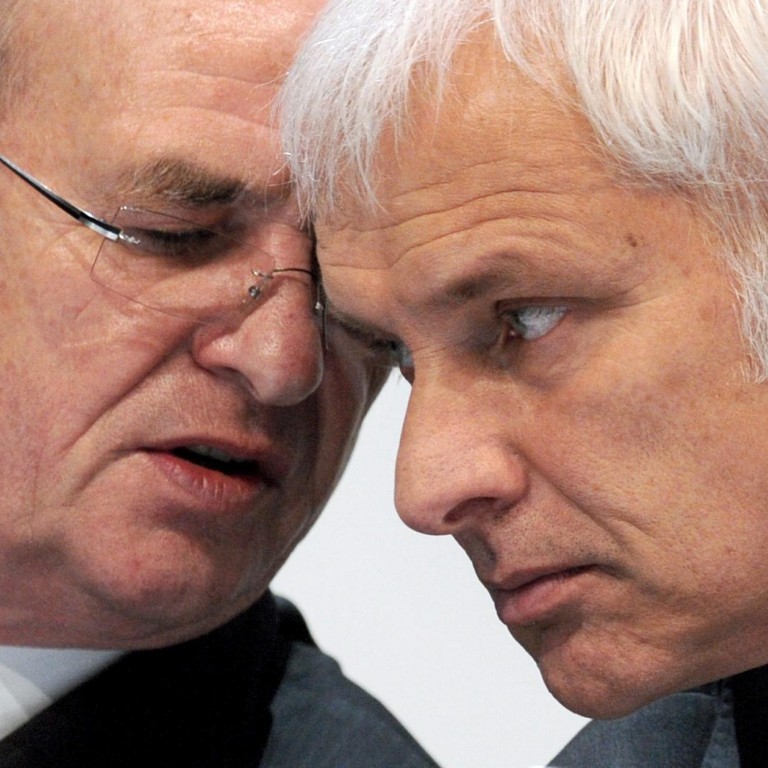
Headless chickens and the VW scandal
Volkswagen situation differs from BP, Toyota corporate scandals in that it was a deliberate effort to mislead
I don't know about you but I'm still scratching my head in disbelief: can it really be that the biggest cheats on the block come from solid reliable Germany and from the people who produce what are regarded as solid reliable cars?
Yet Volkswagen is now at the centre of one of the biggest global corporate scandals as it grapples with the herculean problem of how to restore trust in its brand.
And, just in case anyone still labours under the illusion that this scandal is somehow containable in the way that other corporations have been able to contain scandals, consider this: the problems at VW are entirely self-inflicted because the company actually set out to deceive the public over the level of its emissions and went so far as to build special devices for this very purpose.
Think of other big corporate scandals such as BP's Deepwater Horizon rig disaster or indeed the reputational damage inflicted on Toyota in North America owing to numerous fines and product recalls and it is clear that these disasters were the result of either incompetence, bad luck or poor management, but not the result of a deliberate effort to mislead based on the assumption that they could somehow get away with it.
The only parallels in the corporate fraud arena are to be found, surprise, surprise, in the financial sector where, for example, AIG, which received a breath-taking US$182 billion US government bailout in the wake of the 2008 financial crisis, then fraudulently set about selling assets to pay off its loans.
AIG had to restructure the entire company to purge itself of its evil reputation, and then spent a vast sum repaying the loans and fines. AIG is more or less back on its feet. But what will it take to extricate VW from this mess?
Martin Winterkorn, its notoriously arrogant chief executive, has been forced to step down along with other officials and by the day VW is forced to announce new and expensive plans for resolving this mess. No one seriously believes that this is the end of the repercussions and the big question still lingers: what will it take to restore trust in VW?
This saga confirms that even the biggest corporations tend to react very much like the average Joe in the street when faced with survival threatening events.
An interesting paper by American academic Thomas Powell found that in the wake of these disasters, corporations are "often advised to adopt radical, frame-breaking changes. However, evidence suggests threatened organisations tend to do exactly the reverse, they are rigid and detached, relying on existing strategies, routines and resources to pull them through, and then - if they survive - coping with problems once the threat has passed."
This more or less describes how BP initially reacted to the Deepwater Horizon disaster, thinking that it could be played down, solved with relatively small sums of cash and settled with mealy-mouthed apologies.
As it happens, we have a similar farcical response to disaster on our doorstep, albeit of a smaller magnitude.
The Hong Kong government's response to the lead poisoning water scandal makes the BP board look like master strategists. The government here has tried the tactic of denial, followed by an almost unbelievable attempt to blame everything on a single plumber. Then there was a panicky initiation of overlapping investigations, whining about lack of resources, topped off by a severe reluctance to even conduct testing at schools - a lunacy that lingers.
The bottom line is that major institutions of all types are really not equipped to deal with these eventualities. Part of this is explained by hubris but a bigger part is explained by a weird kind of paralysis that emerges when faced with massively unexpected events.
Small armies of management consultants and spin doctors are deployed to devise contingency plans, train for the worst and so on. However, when the brown stuff hits the fan, these preparations, many of which are anyway spurious, melt away as a motley crew of headless chickens mount the stage.
Today's situation is even more complicated because not only are companies held to higher standards but also the internet has spawned access to information about corporate misdemeanours that were unthinkable just a decade ago. Indeed in the case of VW, citizen bloggers have spread the scandal into the realms of the regulatory bodies.
Yet nothing has really fundamentally changed in the way these things need to be handled. A quick and full response is required, recompense and apology needs to be proportionate and corrective action needs to be impressive. The jury is still out on whether VW can manage to do these things because none of this is simple, but then again who ever thought it was simple to run a global corporation?

